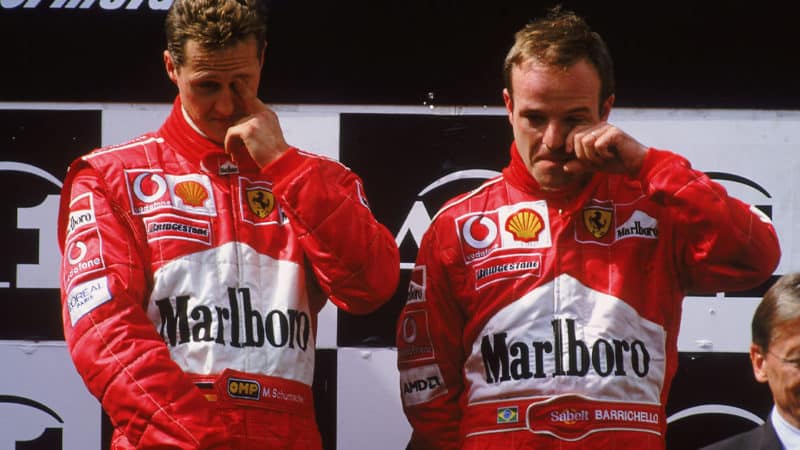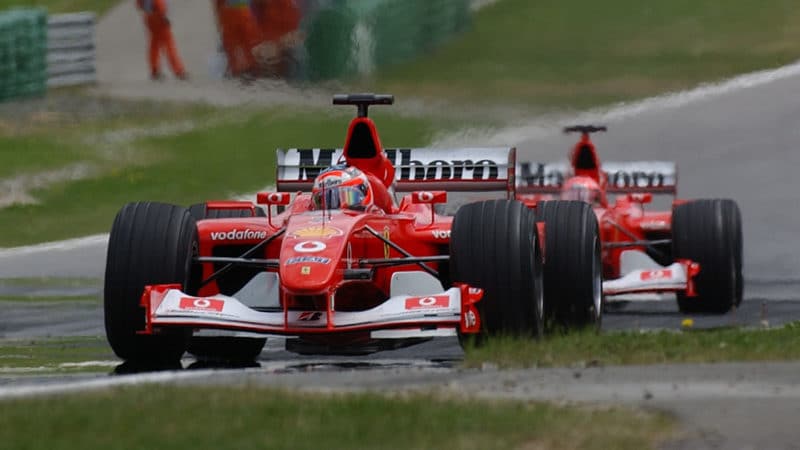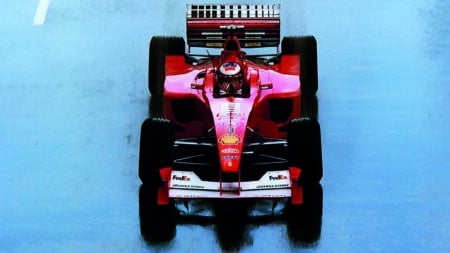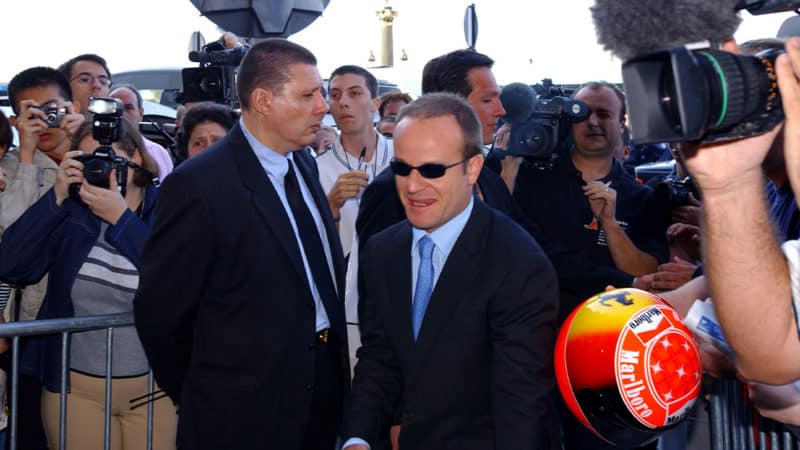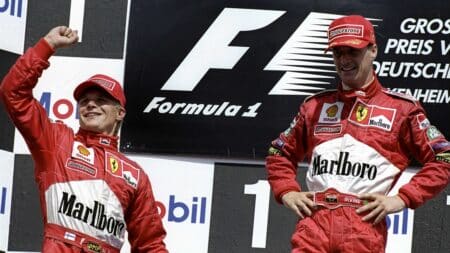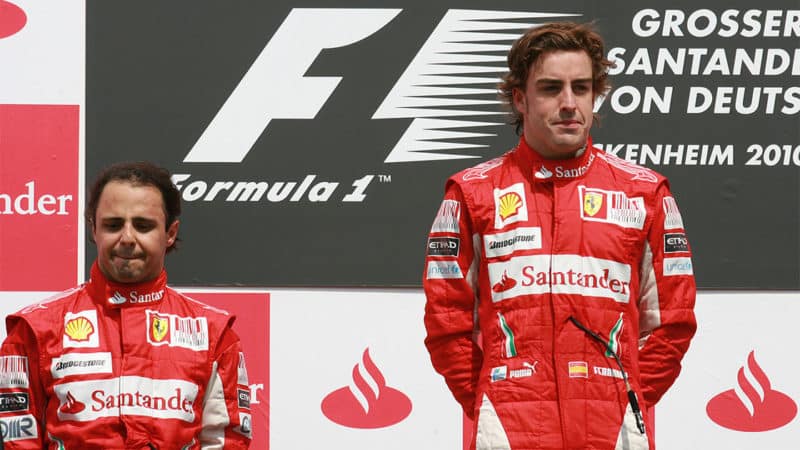“Motor racing has always been a team sport — at international level at least, when works teams make up the bulk of the field,” he said in the aftermath of Austria ’02. “This is as true of F1 as it is of Le Mans, or world rallying.”
Although Schumacher already had a sizeable lead in the standings, it was still early in the season and Ferrari did not want to risk anything to hinder the German’s chances of winning a fifth title at the time. With that in mind, the Scuderia imposed team orders on Barrichello, who was reluctant to obey.
At first, the Brazilian refused to come to heel. But then came the threats from Ferrari. Serious threats which would cause offence to some.
“It was eight laps of war,” Barrichello said in 2012, while recalling the incident. “It’s very rare that I lose my temper, but I was screaming on the radio. I kept going right to the end, saying I would not let him pass.
“That’s when they said something about something much broader. It was not about the contract.
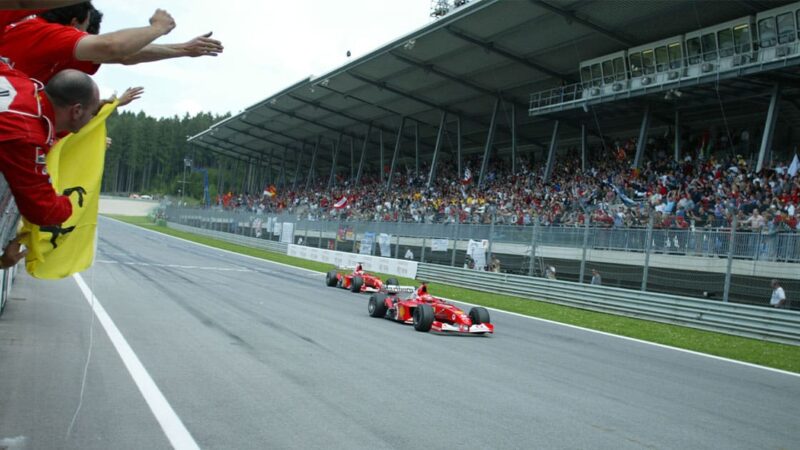
Schumacher takes win after clear slowing by Barrichello
DPPI
“I cannot tell you what they said, but it was a form of threat that made me think about re-thinking my life, because the great joy for me was driving.”
So, it was made clear that he only had one choice on the matter. But Barrichello didn’t want to do it in a way where Ferrari would come out of it unscathed. So, he waited. And he waited until the final corner of the last lap before slowing down with 100 yards until the finish line. Doing so enabled Schumacher to pass for victory, but Ferrari suddenly had an embarrassing PR disaster on their hands.
Reaction to the 2002 Austrian Grand Prix
Ferrari, particularly Schumacher, felt the wrath immediately. Fans were furious. What should have been a momentous day for the Italian outfit, turned into greetings of jeers and boos as soon as Schumacher’s crash helmet came off. Fans could not comprehend what had just happened. How could Ferrari make clearly the better driver over the weekend, give up the race victory to hand it on a plate to his team-mate, who had not done the job that was required of him?
It was unsportsmanlike.
